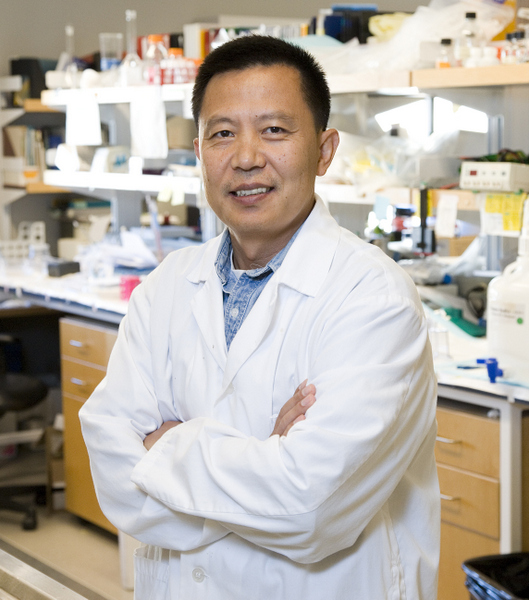A new technique that targets only the harmful form of certain proteins has been developed by researchers at the Brain Research Centre.
The findings, published this month in Nature Neuroscience, has important implications for a variety of diseases, including Alzheimer’s disease, Huntington’s disease, stroke and even cancers, the researchers say.
“This technique is revolutionary, because it can reduce or remove the pathological form of the protein without impacting the normal form of the protein or harming other proteins in the cell,” says Xulai (Shelly) Fan, a UBC PhD candidate who co-led the study with Yu Tian Wang, a Professor in the Division of Neurology.
The new technique uses a peptide — a compound containing two or more amino acids — and the cell’s own machinery to temporarily disable protein function in select brain regions affected by disease. Directly targeting specific proteins is important, because many disease-causing proteins have normal functions in the cell. They become harmful – or bad apples – only during certain disease processes.
In a stroke, for example, the body activates a protein, DAPK1, which damages or kills neurons in the affected brain area. However, in its normal form and outside the affected brain area, DAPK1 has a positive function – clearing the body of cell mutations and inhibiting the abnormal cell growth found in cancer. Targeting is critical because permanently disabling DAPK1 outside of the affected brain area could have many adverse effects.
“If we can target these proteins temporarily we may be able to save neurons without impacting the patient’s overall health,” says Dr. Wang, who is the Heart and Stroke Foundation of BC & Yukon Chair in Stroke Research. “This technique has broad applications.”
